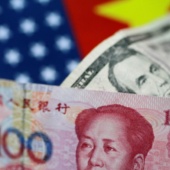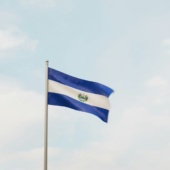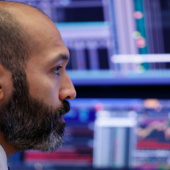Public pension fund manager has grown its quantitative equity team to more than US$14 billion of assets

Article content
Quebec’s public pension fund manager has grown its quantitative equity team to more than US$14 billion of assets in less than four years, and one of its top executives is bullish on doing even more.
Data-based strategies are helping Caisse de depot et placement du Quebec (CDPQ) bring new rigour and ideas to the fund’s stock portfolio, Vincent Delisle, the firm’s head of liquid markets, said.
Advertisement 2
Article content
“Our quant team has outperformed in the last three years, so we are quite happy with their contribution to the portfolio,” Delisle said, though he declined to give specific return figures.
CDPQ isn’t the only large money manager relying more heavily on quantitative-driven strategies. Abu Dhabi’s US$1 trillion wealth fund is using a 125-person division of data scientists to guide in-house investing, officials said in rare public comments to Bloomberg News. Vanguard Group Inc., famous for its index funds and ethos of low-fee investing, has been using machine learning across a number of active stock funds.
Delisle, who previously worked at Bank of Nova Scotia in equity research and quantitative strategy roles, jumped to the US$452 billion investment manager in 2020 as part of an overhaul by new chief executive Charles Emond, himself a former Scotiabank executive.
Among the biggest changes that followed was a shift toward technology stocks. CDPQ was underexposed to the sector when the COVID pandemic hit, missing out on some of the huge gains made by big-cap tech companies during the period of ultra-low interest rates. “We have to make sure that our portfolio takes a digital turn to follow the economy,” Emond said in August 2020.
Article content
Advertisement 3
Article content

That same month, Delisle took up his role at CDPQ. Under the radar, he set up a quantitative team that has now grown to 10 people. The US$20 billion managed by that group is still a small portion of the manager’s US$120 billion stock portfolio as of June 30. CDPQ’s global equity strategy is mainly allocated in quality, growth and value mandates.
“We look at the same fundamental things, but we apply it in a systematic way, which means there’s no subjectivity,” Delisle said. “Systematic strategies have had more success than fundamental strategies. Why? More volatility, more opportunities to change the positioning in portfolios, which is very difficult for humans.”
CDPQ analyzes 75,000 data points every day to forecast monthly returns on thousands of stocks. Artificial intelligence tools are also used for quarterly earnings calls, deploying large language models to try to draw conclusions from transcripts.
“Language has predictive value,” Delisle said. For example, companies with more straightforward communication tend to outperform.
Delisle said the introduction of data science at CDPQ brought “some nervousness” within the team of fundamental managers, but also a “healthy competition for capital.”
Advertisement 4
Article content
“Having only one philosophy previously put way too much pressure on one team,” he said. But human portfolio managers still have a chance. “This year, just to be clear, the fundamental team is having a better year than the quant team.”
Recommended from Editorial
Other Canadian pension funds such as Canada Pension Plan Investment Board and Ontario Teachers’ Pension Plan Board also use quantitative strategies. “We’re looking for unique, underappreciated insights into individual companies. And the way we do that is by scouring data, finding new data sources, new insights from that data,” Frank Ieraci, CPPIB’s head of active equities and investment science, said in a 2023 video.
Article content




















